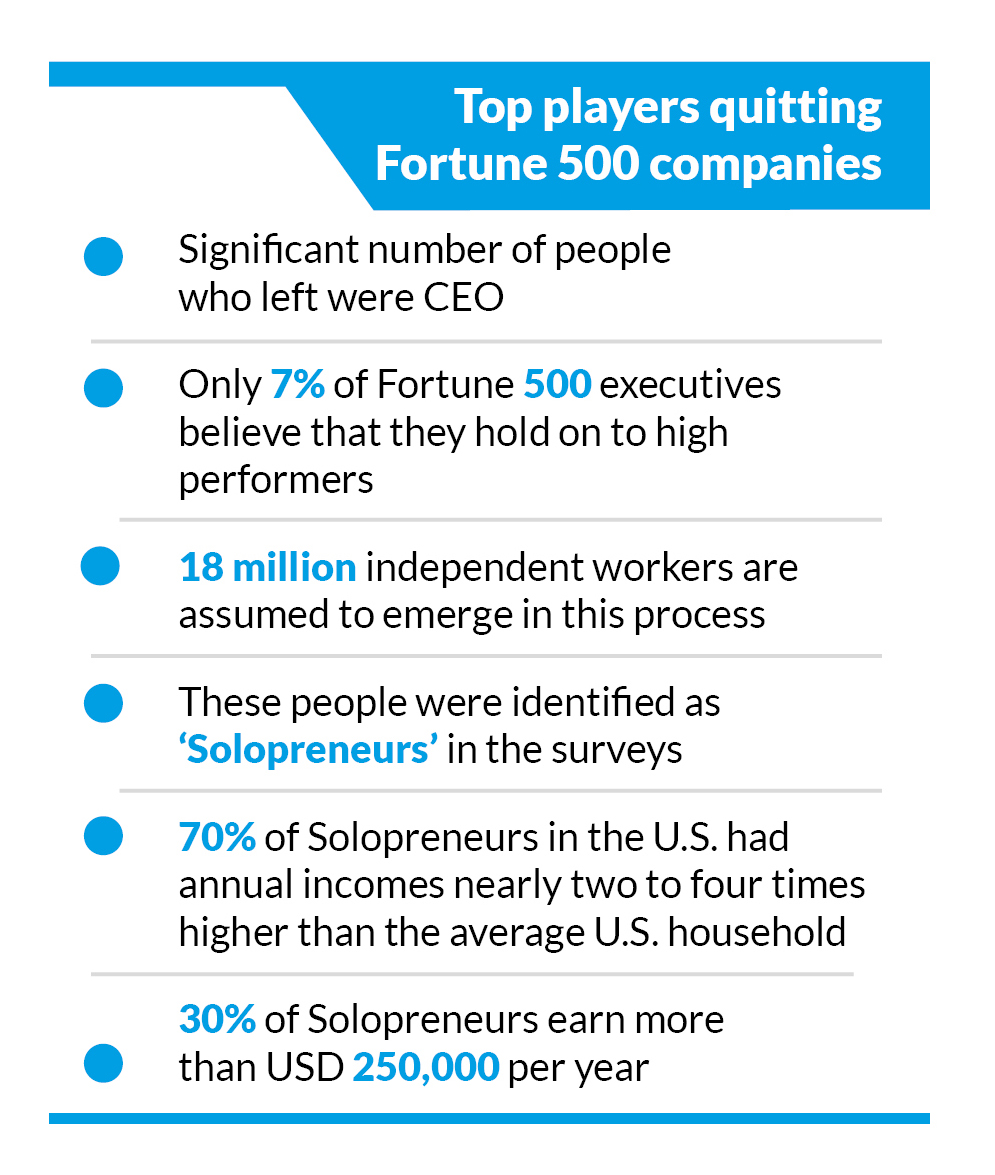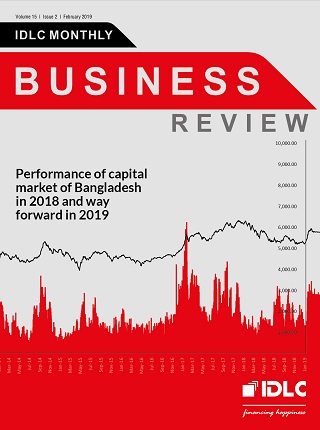Why some high performers are quitting big companies to work for themselves?
Survey on Fortune 500 companies by McKinsey & Co.
Every leader wants to have a great team, so one of the trend that is stretching the top corporates of Fortune 500 is that many of the very experienced people are leaving highly recognized and respected companies to become freelancers, driven by the prospect of earning more and also to live a work life more suited to one’s individual preferences, to be exact, having a balanced work life.
McKinsey has done a survey on most of the Fortune 500 companies and the findings were interesting. Most of the Fortune 500 companies have strong presence in the market, which allows the employees to get enhanced self-esteem. However, recent trend of the top performers leaving the companies made them ponder about the phenomenon.
This statistics give us an idea why the senior executives walked away from working in multi-million dollar brands to lead a startup, trade stock options for oneself or start personal consultancy practice. An interview with ‘Solopreneurs’ reveal that neither these people were not forced out of any company due to unsatisfactory performance nor they had to start their own businesses out of necessity. On the contrary, they chose to leave their paths even being star performers. They decided to leverage on the relevant niche skill that they were superior at. As a result, these skills could be valued more, which are now bringing the ‘Solopreneurs’ more autonomy, more money and greater free time.
Leaving big companies for smaller ones is backed by economic and emotional considerations. Many high-skill professionals will earn more money on their own than by working for someone. So tolerating the uncertainty associated with unstable paycheck can bring in more than enough for the ‘Solopreneur’. There are cases of a junior consultant and senior level officer who excelled in freelancing and independent-practice model. It paid off more than getting an MBA or even working as the chief strategy officer at Neilsen. A good number of those who left big companies were introverts who were tired of working in a predominantly extroverted environment. And many realized that political skills were increasingly important as you get up the ladder and thus many lost their desire to play that game.

Large companies do offer opportunities to bring home a large paycheck, but the general perception among ‘Solopreneurs’ is that those jobs have diminishing returns to their happiness. Their self-awareness repels them from jobs with extremely high stress or lack of high autonomy. Solopreneurship brings freedom. Being free from serving others or answering to an authority. Otherwise, it is the same old battle year on year without any escapes. People go solo to prioritize friends and family and enjoy work-life balance.
Technology is making it easier to break away from the corporate arena and set up a business, hence ‘Solopreneurs’ can come up with businesses that require fewer capital and physical assets. ‘Solopreneurs’ are expected to grow significantly, which may drain the resources from large companies and put them in a fix.
ABOUT THE RESEARCH
Research is done by McKinsey & Co. which was conducted on surveying senior executives of Fortune 500 companies to focus on the background of so many executives leaving secured and structured workplace to pursue freelance business.

Monthly Business Review- February 2019
Bright picture for Capital Market in 2019
The Market Capitalization (Mcap) /GDP ratio lowered to 17% in 2018 from 24% in 2014, whereas the peer countries mostly picked up for peer countries. One potential reason for this phenomenon is lack of listing of large corporates in the market. However, 2018 witnessed a number of developments in the form of partnerships and regulations. The strategic partnership between DSE and a Chinese consortium of Shanghai and Shenzhen Stock exchanges is expected to contribute in capital market improvement. BSEC approved the draft Qualified Investor Offer by Small Capital Companies Rules, 2018 that is expected to increase efficiency of the market by providing a separate market for small cap companies.
Future prospect of the capital market in 2019 looks bright as government expects GDP growth to be at 7.8% and inflation at 5.6%. Economic Intelligence Unit (EIU) and UN predicted Bangladesh to be one of the fastest growing economy. Provided that interest rates remain under control and liquidity conditions improve, the market is expected to perform better. Stable political environment will attract foreign investment and improvement of exports and remittance can help ease pressure on currency.
Download View